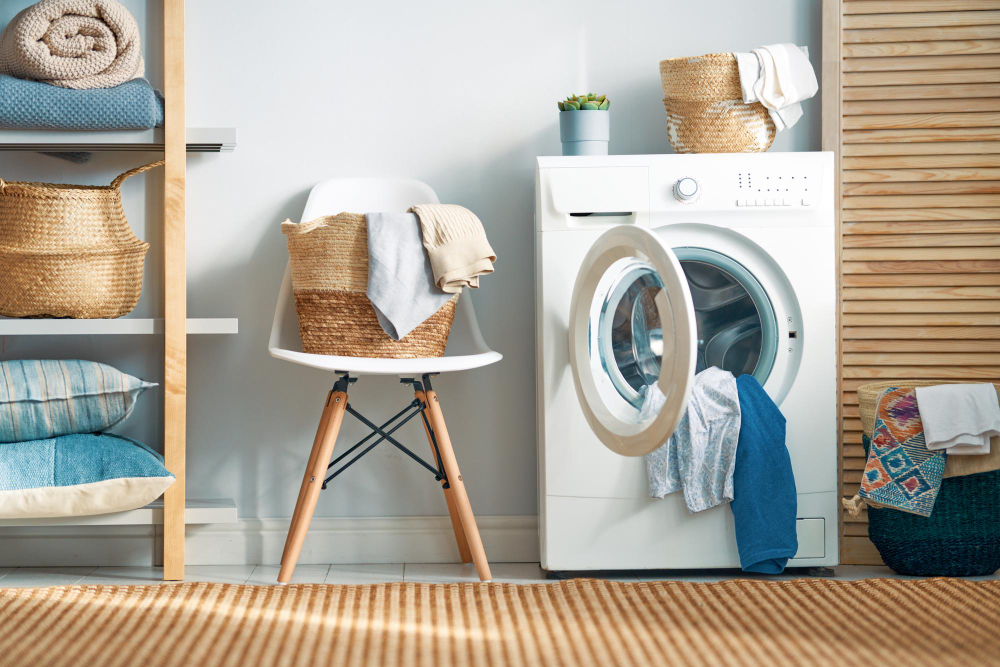Doing laundry is a necessary task that most people would rather avoid. The chore becomes even more frustrating when your laundry room is filled with an unpleasant odor. The common issue of your house smells like sewer gas while doing laundry can be troublesome, but fortunately, there are ways to eliminate it. In this article, we will discuss the causes of these foul smells and provide solutions to rectify the problems.
Common Causes of Sewage Smells in Laundry Rooms
- Dry Traps
Plumbing systems in laundry rooms usually have traps that contain water to prevent the release of sewer gas. These traps are found in laundry sinks and pipes. If the traps run dry, gas has a free passage, resulting in a sewer-like smell. - Improper Washing Machine Installation
Many people mistakenly install washing machines in a hurry, leading to a connection to the drain line without blocking sewer gas. This oversight allows gas to escape whenever the machine is in use, creating a foul smell. - Mildew Presence
Laundry rooms often have humid conditions due to plumbing fixtures or leaks, making mold and mildew common. A strong presence of these organisms can produce a foul odor, and since they’re not conducive to health, it’s crucial to address them. - Sewer Leak
Sewer systems are designed to keep both gas and liquid contained, but a leak can allow gas to escape, causing a foul smell every time the washing machine is used. This issue should be resolved quickly to prevent a complete breakdown of the sewer system. - Clogging
Drain lines can become clogged with waste and residue if they’re not cleaned periodically, leading to a foul smell. The intensity of this smell increases whenever the washing machine is used. - Low Ventilation
Laundry rooms are often located in basements and may not have proper exhaust fans. As a result, foul smells can linger and intensify with each use of the washing machine. - Unclean Washing Machine
Bacteria and microbes can grow inside washing machines if they’re not cleaned regularly. Soap scum, residue buildup, and mold and mildew growth can all contribute to a foul odor that intensifies with every use.
Solutions to Eliminate Sewage Smells in Your Laundry Room
- Addressing Dry Traps
A plumber can refill dry traps with water, preventing sewer gas release and eliminating the foul smell. - Correcting Washing Machine Installation
If your washing machine is improperly installed, reinstall it and seal the line to prevent gas release. While sealing the line is typically inexpensive, labor costs may be around $100 higher. - Tackling Mildew
For mildew issues, you can try the following solutions:- Create a bleach solution to clean mold and mildew. Add 1 cup of bleach to the washing machine and run the longest cycle possible with hot water. Drain the water afterward and open the machine for proper ventilation.
- If mold and mildew are present around the washing machine, professional cleaning is necessary. If the cleaners determine that plumbing fixtures or leaks are causing the problem, hire a plumber to address the issue.
- Fixing Sewer Leaks
Hiring professionals to fix sewer leaks is the best course of action. They can use a small camera to locate the leak without digging up the entire sewer system. Sophisticated tools can be used to replace the damaged section with minimal disruption. - Unclogging Drains
Use drain cleaners to remove clogs. If DIY solutions don’t work, hire a professional to handle the problem to prevent further blockage. - Improving Ventilation
To enhance ventilation in your laundry room, consider installing an exhaust fan or simply keep the door open to allow fresh air to circulate. This will prevent fumes and foul odors from lingering for extended periods. - Cleaning Your Washing Machine
Modern washing machines often feature a self-cleaning cycle. Add detergent to the machine and complete the cleaning cycle to eliminate odors and clean the interior.
Frequently Asked Questions
- Why does my laundry room smell like rotten eggs?
The smell of rotten eggs in a laundry room is often caused by the release of hydrogen from fungus or the presence of mold and mildew. Professional cleaning can help address this issue. - Why does my house smell like a sewer when I wash clothes?
Causes may include pipe leakage, insufficient ventilation, clogged pipes, and an unclean washing machine. - Should I be concerned if my house smells of rotten eggs?
If the entire house smells like rotten eggs, it could indicate a gas leak. In this case, you should contact your gas company immediately.
Conclusion
In conclusion, dealing with laundry smells like sewage can be an unpleasant experience, but identifying the cause and taking appropriate measures can help eliminate the problem. Proper maintenance and care of your laundry room and washing machine can prevent the recurrence of foul odors, ensuring a more pleasant laundry experience. Remember that if you ever smell sewer gas in my house or your laundry room smells like sewage, don’t hesitate to consult with a professional to diagnose and resolve the issue.

